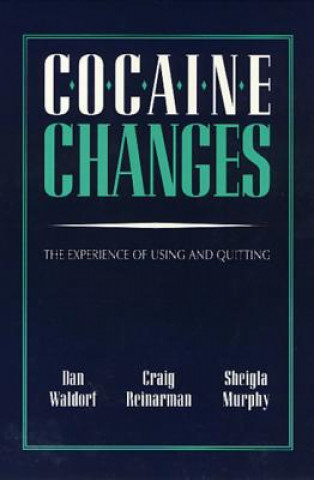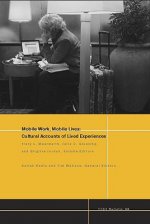
Doručenie
Nákupný poradca





Nehodí sa? Žiadny problém! U nás môžete do 30 dní vrátiť
 Darčekový poukaz
v ľubovoľnej hodnote
Darčekový poukaz
v ľubovoľnej hodnote
S darčekovým poukazom nešliapnete vedľa. Obdarovaný si za darčekový poukaz môže vybrať čokoľvek z našej ponuky.
Cocaine Changes
 Angličtina
Angličtina
 93 b
93 b
30 dní na vrátenie tovaru
Mohlo by vás tiež zaujímať


The latest War on Drugs in the United States targeted cocaine and later crack as an "epidemic" sweeping the nation with tragic and irreversible effects. Dan Waldorf, Craig Reinarman, and Sheigla Murphy conducted a study of heavy cocaine users in an effort to understand how they got started, their uses of cocaine, the "natural" progression of use and abuse, and the motivations to stop as well as strategies to do so. Cocaine Changes, based on 267 in-depth interviews with heavy users, authoritatively documents the dangers of cocaine but contends that the national hysteria over it is largely unfounded. Many of the respondents actually could, and did, regulate their use so that it did not disrupt their daily lives. Many others managed to stop using and walk away from cocaine. The authors' surprising conclusions challenge the American public to think about drug use and its cultural context in more complicated ways and to develop more rational public policies toward drug problems. With compelling evidence, the authors found that cocaine is neither immediately nor inevitably addictive, and that controlled use is not only possible but extremely common. Presenting what they describe as "politically inconvenient scientific knowledge," they demonstrate that what keeps many heavy users from falling into "the abyss of abuse" and what helps retrieve those who do fall is a stake in conventional life: jobs, families, friends. While millions of dollars have been spent on ads asserting that "the best thing you can do for a cocaine addict is to cut him off," these findings argue that friends, family, and meaningful roles are precisely what makes controlled use and cessation possible. Another surprising result of this study is the relative ease with which so many heavy users managed to quit. Most of the participants who wanted to quit using cocaine did so without treatment and found it was far less difficult than imagined (or advertised). Furthermore, many formerly heavy users resumed occasional use without relapse. Most assuredly, Waldorf, Reinarman, and Murphy are convinced that cocaine use entails real risks. Their interviews reveal a wide array of physical, psychological, and social problems. Nevertheless, they conclude that if controlled use is possible and addiction not inevitable, then "cocaine's image as the great scourge of the late twentieth century" is distorted by moralistic rhetoric. Author note: Dan Waldorf is a Research Sociologist and Project Director at the Institute for Scientific Analysis. Craig Reinarman is Associate Professor of Sociology at the University of California, Santa Cruz. Sheigla Murphy is Co-Principal Investigator of a National Institute on Drug Abuse study of women and cocaine.
Informácie o knihe
 Angličtina
Angličtina




 Ako nakupovať
Ako nakupovať

























